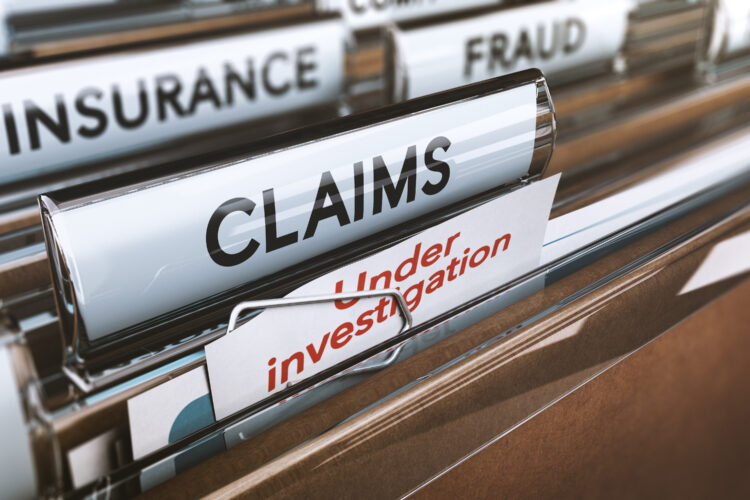October 4, 2022
The federal False Claims Act (FCA) makes it illegal to knowingly defraud the federal government in a variety of scenarios, including submitting inflated and/or otherwise fraudulent Medicaid/Medicare claims, providing substandard goods or services to the U.S. military, and customs fraud.
Billions of dollars have been recovered for the federal government over the many decades of the FCA’s existence through successful FCA lawsuits. Notably, FCA lawsuits are typically initiated by private individuals with knowledge of illegal activity, and, if successful, said private individuals are eligible to receive a financial reward of between 15-30% of the total financial penalties imposed on an FCA defendant.
What Constitutes A Violation Of The False Claims Act?
In proving an FCA claim, a whistleblower plaintiff (and/or the government) must allege facts relating to one of the following eight scenarios involving an individual or entity that:
- Knowingly presents or causes to be presented a false or fraudulent claim for payment or approval;
- Knowingly makes, uses, or causes to be made or used a false record or statement material to a false or fraudulent claim;
- Conspires to commit a violation of the FCA;
- Has possession, custody, or control of public property or money used or to be used by the state or by any political subdivision and knowingly delivers or causes to be delivered less than all of that property;
- Is authorized to make or deliver a document certifying receipt of property used or to be used by the state or by any political subdivision and knowingly makes or delivers a receipt that falsely represents the property used or to be used;
- Knowingly buys, or receives as a pledge of an obligation or debt, public property from any person who lawfully may not sell or pledge the property;
- Knowingly makes, uses, or causes to be made or used a false record or statement material to an obligation to pay or transmit money or property to the state or to any political subdivision, or knowingly conceals or knowingly and improperly avoids, or decreases an obligation to pay or transmit money or property to the state or to any political subdivision; OR
- Is a beneficiary of an inadvertent submission of a false claim, subsequently discovers the falsity of the claim, and fails to disclose the false claim to the state or the political subdivision within a reasonable time after discovery of the false claim.
Any number of situations might qualify as grounds for a successful FCA claim, but often such a situation involves an individual or entity receiving federal government funds or reimbursements for goods or services that were not provided, not necessary, not what they purport to be, or of inferior quality.
Below are several recent examples of allegations in successful FCA lawsuits:
- A defense supplier misled the government about its cybersecurity practices to gain missile defense and rocket engine contracts
- A software company misled the government in fraudulently obtaining multiple PPP loans
- A medical service provider misled the government with respect to its security procedures for patient records
- A specialized footwear company billed the government for what purported to be custom-designed medical goods but which were generically created
- A pharmaceutical company paid kickbacks to doctors and pharmacies to promote its prescription drugs while also promoting the drugs it knew “were unsafe, ineffective, and medically unnecessary, and that often led to abuse and diversion”
Can I File an FCA Claim if I Had a Role in the Violation?
It is often the case that a person with some connection to an FCA violation comes forward as the whistleblower to expose the fraudulent activity and collect a whistleblower reward. After all, it is typical for those involved in fraudulent activity to attempt to limit the number of people who are aware of the crime to those who are necessary to conduct the illegal activity, and thus it is common for a person who may have had some direct or indirect role in said activity to come forward as a whistleblower (although to be clear, nearly anyone with sufficient knowledge of said illegal activity can act as a whistleblower, even if they are a complete outsider to the business).
The text of the FCA makes clear that a person who had a role in the FCA fraud – even a person who initiated the fraud – may act as a whistleblower in an FCA suit, although the financial reward that person receives may be reduced as a result. Notably, a person who has already been convicted of the underlying activity may not pursue a whistleblower claim. Furthermore, if the government has already initiated a legal proceeding regarding the underlying activity – or if the whistleblower is bringing information to the government that is already available through public sources (unless the whistleblower was the source) – a person may not obtain a financial reward. Thus, it is important to act quickly to avoid these types of scenarios.
Contact a False Claims Attorney
If you believe you have a knowledge of fraud that may form the basis of a successful FCA claim, you are highly encouraged to work with experienced FCA counsel to discuss and prepare your claim in a completely confidential environment.
By working with an experienced FCA attorney in pursuing your whistleblower claim, you can improve your chances of successfully obtaining a significant whistleblower reward, while also working proactively to protect yourself from retaliation. Because there are statutes of limitations issues related to FCA claims – and because typically only the first whistleblower to come forward with knowledge of illegal FCA violations is eligible to obtain a reward – it is important to work quickly in moving forward on pursuing a whistleblower reward with the assistance of an experienced FCA attorney.

